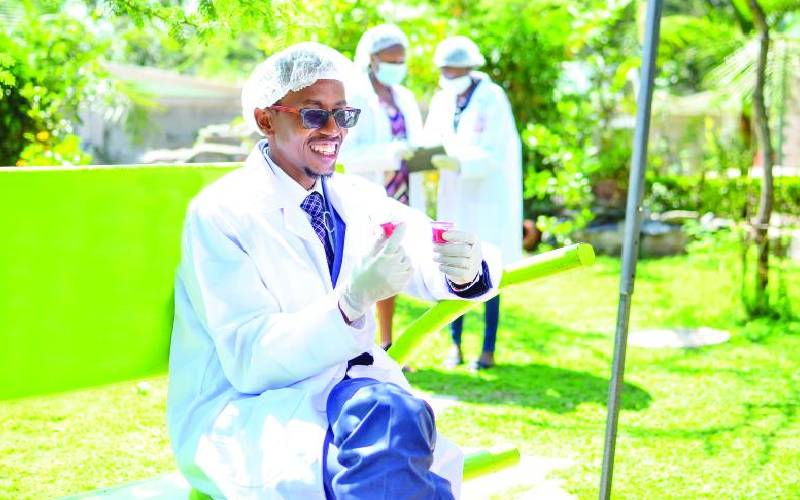×
The Standard e-Paper
Smart Minds Choose Us

Mugo Keiyoro
“I was seated next to a madman in church one day. When it was time for Holy Communion, he dipped his hand in the bowl and came out with a hand-full of wafers. He then dropped them back in and the bowl was passed on,” says 35-year-old Mugo Keiyoro.